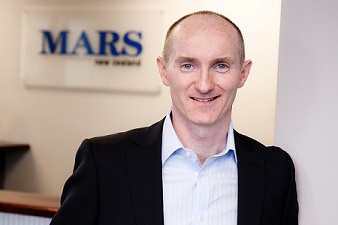At the recent
IBM Kenexa Best Workplace Awards, Mars was named as New Zealand’s best medium to large employer. But what are the secrets to the company’s workplace success?
HRM sat down with Gerry Lynch, GM of Mars New Zealand, to find out.
A unique place to work
According to Lynch, the difference between Mars and other companies stems from its remaining a family-owned firm.
“Mars’ culture is driven by five principles that were driven by the family for years and years,” said Lynch.
“If you ask anyone at any level in the organisation, they’ll know about those five principles and use them in their work.”
He gave the example of ‘mutuality’, which is one of the five principles.
“Is the client winning, and are we winning? That’s one of the key ways in which we operate.”
Another thing that makes the Mars office unique is that the company allows employees to have their dogs at work, which partially relates to the pet food manufacturing arm of the company.
Strong communication
“Our office is entirely open-plan,” Lynch told
HRM.
“The stipulation worldwide at Mars is that the offices are open-plan, which has allowed us to create an egalitarian culture. None of the managers have their own office, so anyone can come and chat with me – there are no barriers.”
Lynch added that he is particularly proud of the way in which Mars handles employee feedback.
“We took some learning from the London Olympics,” he explained. “It was the first one where no one was killed in a construction project.”
One of the ways in which this was achieved was by having a sign on construction sites where people could record any hazards; the next day, those hazards would be dealt with by managers.
“We take feedback and act on it,” Lynch said.
“When we spoke to IBM Kenexa, we found that many companies don’t handle bad feedback well – it can often be argued with, or the company passes the blame.
“At Mars, we embrace feedback. After hearing employee feedback, we feed back to our people and explain exactly how we plan to address or resolve the issues that have been raised.”
For Lynch, this is not “just a one-time thing” – it’s a year round process.
“If there are issues, we face into them quickly; whether they are challenges in teams or poor performance, we try to resolve them as quickly as possible.”
He added that the lack of hierarchical barriers helps the process to happen so quickly.
This open communication has also brought Mars a long way in terms of keeping employees engaged.
“Ten years ago, out internal surveys were telling us that feedback was staying within teams, but now we have developed to the point where everyone owns their own engagement – it isn’t your line manager’s responsibility; everyone is responsible for their own engagement and the engagement of their team.”
This has been worked on so that every team has a regular conversation about their satisfaction at work. They then design a two or three point plan around specific areas they want to focus on improving or changing.
Cultural exchanges aren’t just for students
Lynch had a unique tip for HR managers looking to improve their workplace’s culture.
“Go and talk to some other companies – explore another culture,” he advised.
“Look at what people are doing well, and be curious. Find out what they’re doing; go and see how they’re doing it.”
“This is something that you can’t learn from hearing or reading about it,” he added.
“It’s something that we have done and continue to do – getting provocation from other companies.”
He explained that in the run-up to the IBM Kenexa Awards, Mars questioned what the other finalists were doing well.
“We are always continuing to learn and get new ideas this way,” Lynch said.
He told
HRM that Mars had a conversation with ASB Bank about creating the ideal workplace culture.
“One of the things they said was that they when they looked at statistics from their best performing and worst performing branches, they found that the best performers had a plan in place to improve their culture, whether that plan consisted of one point or ten.
“It doesn’t matter if you want to focus on one or three things, just have a plan in place.”
What makes a great leader?
“Leaders have to build trust; you won’t get anywhere without it,” Lynch told
HRM.
“You’ve then got to empower your staff – a lot of leaders will get in and be over their employees’ shoulders; step back and let people make mistakes.”
He also emphasised the power of great storytelling, a skill that he said can be the different between a manager and a leader who inspires.
“Great leaders inspire people; they tell stories about their values where the organisation is going to go,” Lynch said.
“We were previously in a situation where people weren’t sure or inspired about our future – but now they know and are excited about Mars’ future, and they want to go there with us.”
This is another aspect of Mars as a workplace that makes the company distinctive.
“Storytelling is a skill that not many leaders have, but one that we’ve invested in,” Lynch explained.
“At conferences you can sometimes be bored, but when you hear a great storyteller you remember what they say, and that changes how people feel.
“One area that HR professionals and senior leaders should be skilled in is being great storytellers – and that’s an area that not many people focus on.”

Gerry Lynch is the general manager at Mars New Zealand.

